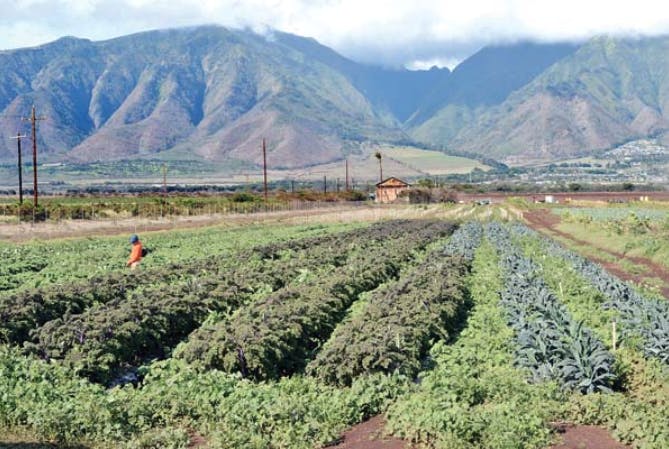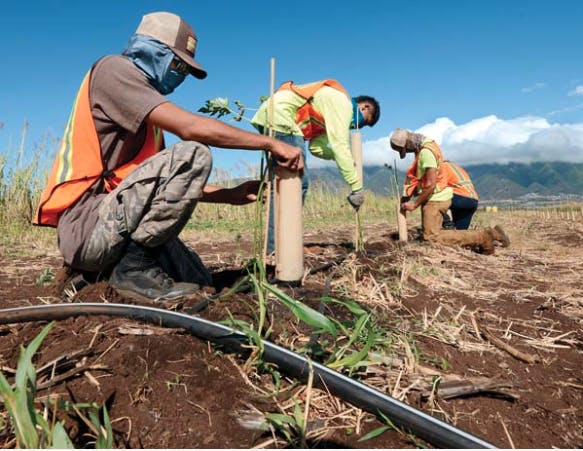Mahi Pono Farmers Pivot Amid Pandemic


Mahi Pono’s fields in Central Maui. Multiple crops are being grown on lands formerly used for sugar cane. — The Maui News / MATTHEW THAYER photo
PUUNENE — Wind. Drought. Pests. Farming in Central Maui already holds a unique set of challenges. Add a global pandemic and agriculture operations are tested in a whole new way.
So Mahi Pono, the largest agriculture company on Maui, has made key changes to its operations in light of coronavirus.
The pandemic affected everything from shipping costs — a 46 percent increase in Young Brothers rates took effect last year — to in-field work that needed COVID-19 safety protocols. Restaurants and hotels — major markets for local produce — closed, causing the company to look at the type and scale of its crops.
One bright spot of the pandemic is that it emphasized the need for food sustainability, making farming more essential than ever, Mahi Pono officials said.
“We’re an island state that continues to import about 90 percent of all of our food; that makes us vulnerable every time there’s a natural disaster, shipping issues or a global pandemic,” said Shan Tsutsui, Mahi Pono chief operating officer.
During a recent farm tour, Tsutsui and Mahi Pono officials discussed the pandemic’s impact on last year’s farm plan and products made available in 2020, along with adjustments they’ve made to this year’s plan.
They highlighted the Chef’s Corner project, a test plot for new crops; the progress of the company’s community farm, which rents parcels to local farmers; and recent plantings that have done surprisingly well, including watermelon, broccolini, kale and green beans.
Instead of producing a signature crop, Mahi Pono wants to be known for an array of locally grown foods — a big departure from the monocrop of sugar cane that has occupied Central Maui fields for more than a century.
“Transforming former sugar cane fields into diversified agriculture is not an easy task,” Tsutsui said. “It takes time, hard work and financial commitment.”
MORE IN NEWS
Teens Getting Their Hands Dirty in Mahi Pono Fields
